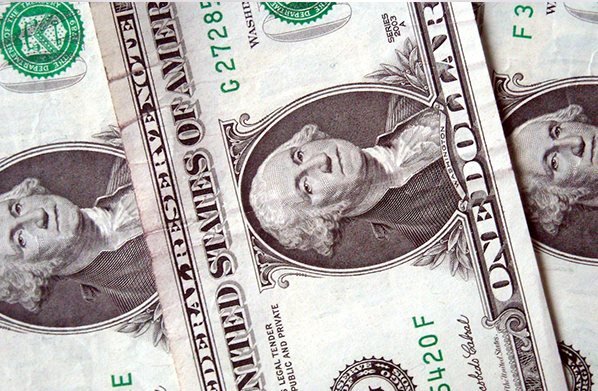Happy New Year. On the first full work week for 2016, the minimum wage will go up in places across the country.
Last Friday, January 1, in 14 states and several cities minimum wage hikes kicked in from coast to coast. California and Massachusetts, two of the most liberal states, are both going from $9 to $10 an hour. Washington, D.C., which currently has the highest minimum wage of $10.50 will see it’s wage floor go up to $11.50 in July. Several cities are boosting their wages even higher than state levels, such as Seattle’s sliding minimum wage between $10.50 and $13 an hour.
New York’s pay floor rose to $9 an hour as well as part of a three-year phrase approach. Governor Andrew Cuomo is reportedly kicking off the work week with a massive rally today to push for a $15 state-wide minimum wage. He was able to circumvent the legislature to push through a $15 minimum-wage increase for fast food workers via a state board fiat.
The celebration will likely be short-lived as the impacts of the increased costs hit those in whose name these policies were meant to help. Many of them will see layoffs and business closures.
Even more, few of the truly poor will be helped. That is the finding of the San Francisco Federal Reserve.
Minimum wage advocates claim that minimum wage hikes help lift American workers out of poverty, but the David Neumark, visiting scholar at the San Francisco Federal Reserve, contends that it’s the wrong way to go about reducing poverty because relatively few people who fall below the poverty line actually receive minimum wages. Minimum wage recipients tend to be higher-income families.
According to Neumark’s research, in 57 percent of families living below the poverty line, there are no workers. Some 46 percent of poor workers earn more than $10.10 an hour, while another 36 percent earn more than $12 an hour, both of which are minimum wages being pushed by progressives. So a good share of poor families won’t be helped by minimum wages.
In addition, the percentage of minimum wage workers has been falling as well, from the most recent high of 6 percent in 2010 to 3.9 percent in 2014.
CNCB reports:
"Setting a higher minimum wage seems like a natural way to help lift families out of poverty. However, minimum wages target individual workers with low wages, rather than families with low incomes," he wrote. "Other policies that directly address low family income, such as the earned income tax credit, are more effective at reducing poverty."
His conclusions drew a response from advocates for raising the wage who said the argument that boosting wages would cost jobs has been proven invalid and that an increase would help cut into poverty levels.
…
"Mandating higher wages for low-wage workers does not necessarily do a good job of delivering benefits to poor families," Neumark wrote. "Simple calculations suggest that a sizable share of the benefits from raising the minimum wage would not go to poor families."
…
"The earned income tax credit targets low-income families much better, increases employment and reduces poverty, and for all these reasons seems far more effective," he wrote. "Policymakers are likely to do a better job fighting poverty by making the EITC more generous than by raising the minimum wage. Furthermore, using both of these policies together is more effective than minimum wage increases in isolation."
If minimum wage hikes aren’t helping the truly poor, who are they helping? Mostly, young workers who are not necessarily deprived. About half of the 3 million minimum wage workers are 16 to 24 years old, largely working in the leisure and hospitality industry. They are more than likely people in school and/or living at home. They may have young families. However, young workers are looking for skills and experience, not to stay in a minimum wage job forever nor to raise their family on minimum wage. That is the tale that advocates don’t want to admit.
A higher minimum wage will also mean that many of these young workers have a hard time getting hired for that entry level job that is so important in building skills and getting a foothold in the work world.
A high minimum wage keeps the poorest people, who have fewest skills, out of the job market altogether. The poorest in our cities and states are left to become dependent on public services when what they need is a job to gain skills, build their dignity, and grow their independence. As this research contends, there are other ways to achieve this goal such as the earned income tax credit, but arbitrary mandated pay raises is not the right way.


